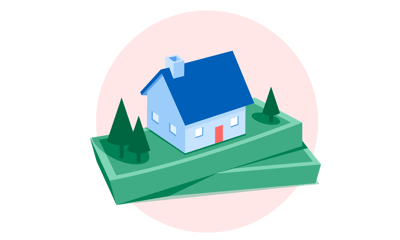Should You Rent or Buy?




Buying a home allows you to do many things that renting does not, like securing more space, getting more control over your living situation or generating wealth through real estate.
But renting has its advantages, too. It's often the cheaper option and can provide you with more freedom.
Whether it’s best for you to rent or buy a home ultimately depends on your personal goals and financial readiness. Here are some considerations to weigh while making your decision.
Read the 2025 Canadian Home Buyer Report
Find out how would-be buyers and current home owners are feeling about the state of the market.
The pros and cons of buying a home
Buying a home is a significant decision that requires commitment and a level of financial independence. While it can be tempting to jump into the real estate market, you still need to consider the pros and cons of buying a home.
Pros of buying a home
You build equity. With every mortgage payment, your home equity will increase.
Stability. You don’t need to worry about any increases in rent or being forced to move because the owner wants to sell.
Full control. You get to decide how your home looks since you’re the owner.
Cons of buying a home
High upfront costs. Not only do you need to come up with a down payment, but there will also be closing costs required.
Less mobility. You can’t easily pick up everything and move when you own a home.
Costs can rise. Your monthly mortgage costs might increase from one mortgage term to the next.
You’re responsible for all maintenance. You have to take care of all the maintenance, including the costs.
Building equity can be slow. Rising real estate prices are not a guarantee. It can take many years before the value of your home increases.
The pros and cons of renting a home
Many people choose to rent for lifestyle or financial reasons. While others may not agree with this choice, there’s no denying that renting does come with plenty of benefits. If you’re not sure if renting is for you, consider the advantages and disadvantages.
Pros of renting a home
Flexibility. You have much more flexibility compared to owning. You can pack up your things and move whenever your lease is up.
It may be cheaper. You don’t need to worry about maintenance costs, property taxes or mortgage payments.
Less maintenance. Your landlord is responsible for most of the maintenance and repairs.
Increased cash flow. The money you save from renting can be used for other things, such as investments, saving for your child’s education or vacations.
Cons of renting a home
No equity built. Your rent payments don’t build equity or help grow your net worth.
Your costs could rise. Landlords can increase the amount you pay in rent every year.
Nothing is guaranteed. Even though your landlord is responsible for maintenance, they may be slow to address any issues that you bring up.
You could be evicted. There’s always a chance that your lease won’t be renewed, or you’re evicted for another reason.
Best mortgage rates in Canada
Compare offers from Canada’s top mortgage lenders and brokers.
The cost of buying vs. the cost of renting
Many people who debate the cost of buying versus renting will often look at mortgage costs and rental rates. The argument is that if your monthly mortgage is similar to renting, you’re better off buying so you can start building wealth through equity.
But there are other costs to consider.
Owning a home involves paying for expenses that don’t necessarily build equity. For example, property taxes and maintenance will typically run you about 1% of the value of your home each year. There’s also mortgage interest and the cost of major repairs that need to be factored in.
Those are all costs renters don't have to worry about. But renters don't possess a home that could one day be refinanced to access thousands of dollars for other purchases or investments. That's a significant opportunity cost.
Renters can, however, invest the money they save by not pursuing homeownership. Their returns could potentially rival those of homeowners.
The usual deciding factor
For many people, deciding whether to rent or buy comes down to affordability: Can you afford all the costs that come with homeownership? Most home buyers get pre-approved for a mortgage so they can answer this question. Many find out during pre-approval that they can't afford as much house as they anticipated. In those cases, renting is the only option.
If a lender approves you for a sufficiently large mortgage, that's when you'll have to decide whether renting or buying is in your long-term best interest.
Not ready for a mortgage pre-approval? No problem. Our mortgage affordability calculator can help you estimate your budget in minutes.
How to decide whether buying or renting is right for you
Buying a home is a major decision, so it can help to ask yourself the following questions to determine if you’re ready:
Do I have a reliable, verifiable income?
Can I realistically commit to a mortgage?
Do I have a sufficient down payment? If not, do I qualify for government programs such as the Home Buyers’ Plan?
Do I plan on moving in the next 12-36 months?
Can I handle the ongoing maintenance responsibilities?
Once you’ve answered the above questions and considered the pros and cons, you’ll have a better idea about whether you should buy or rent.
» FIRST-TIME HOME BUYER? Check out our guide
DIVE EVEN DEEPER

 Clay Jarvis
Clay Jarvis
 Clay Jarvis
Clay Jarvis
 Clay Jarvis
Clay Jarvis
 Clay Jarvis
Clay Jarvis